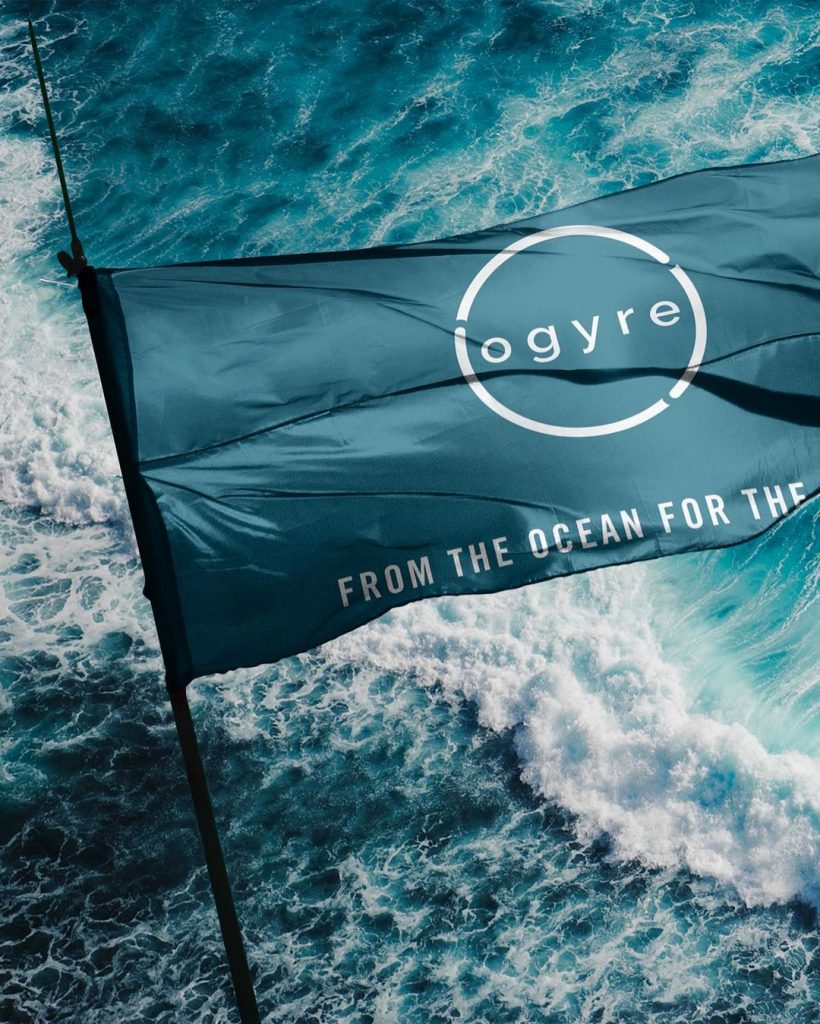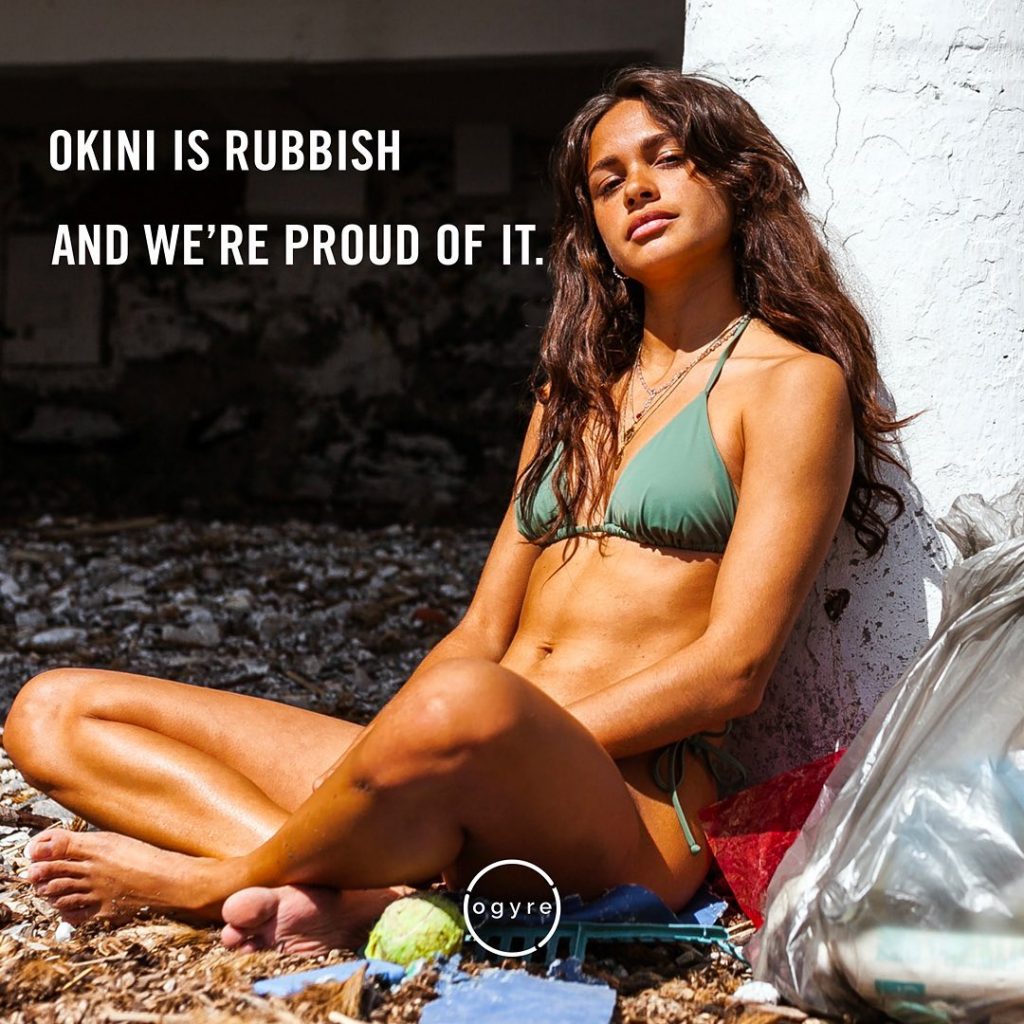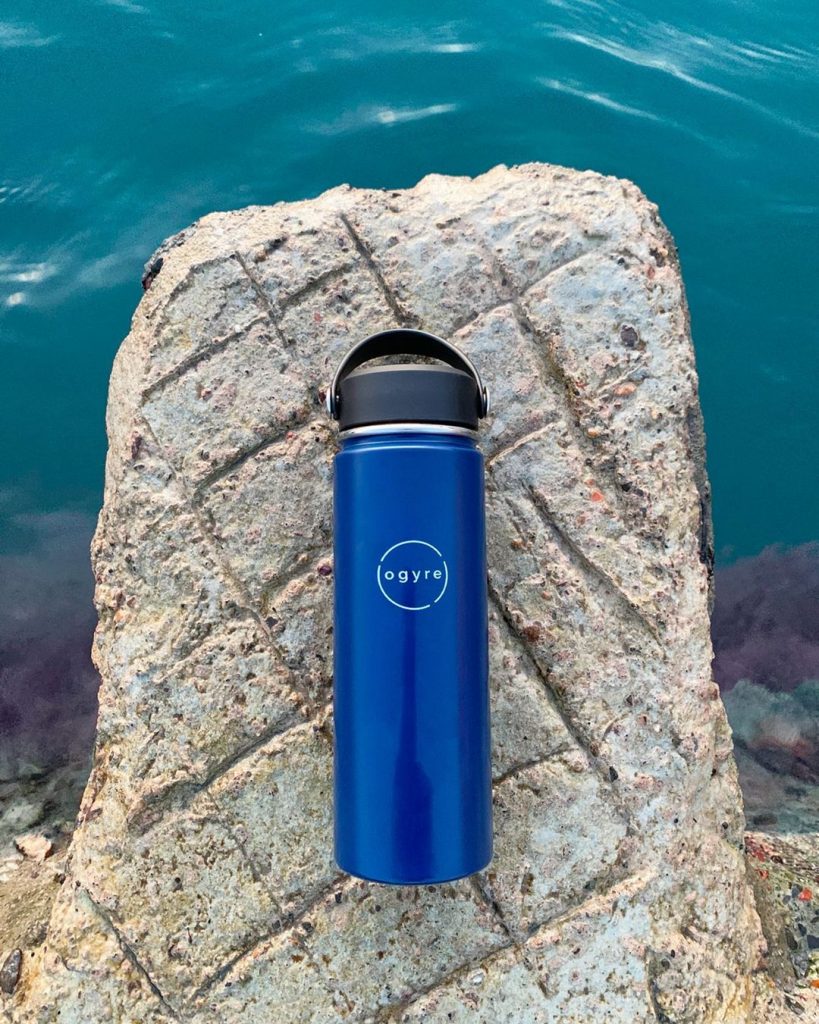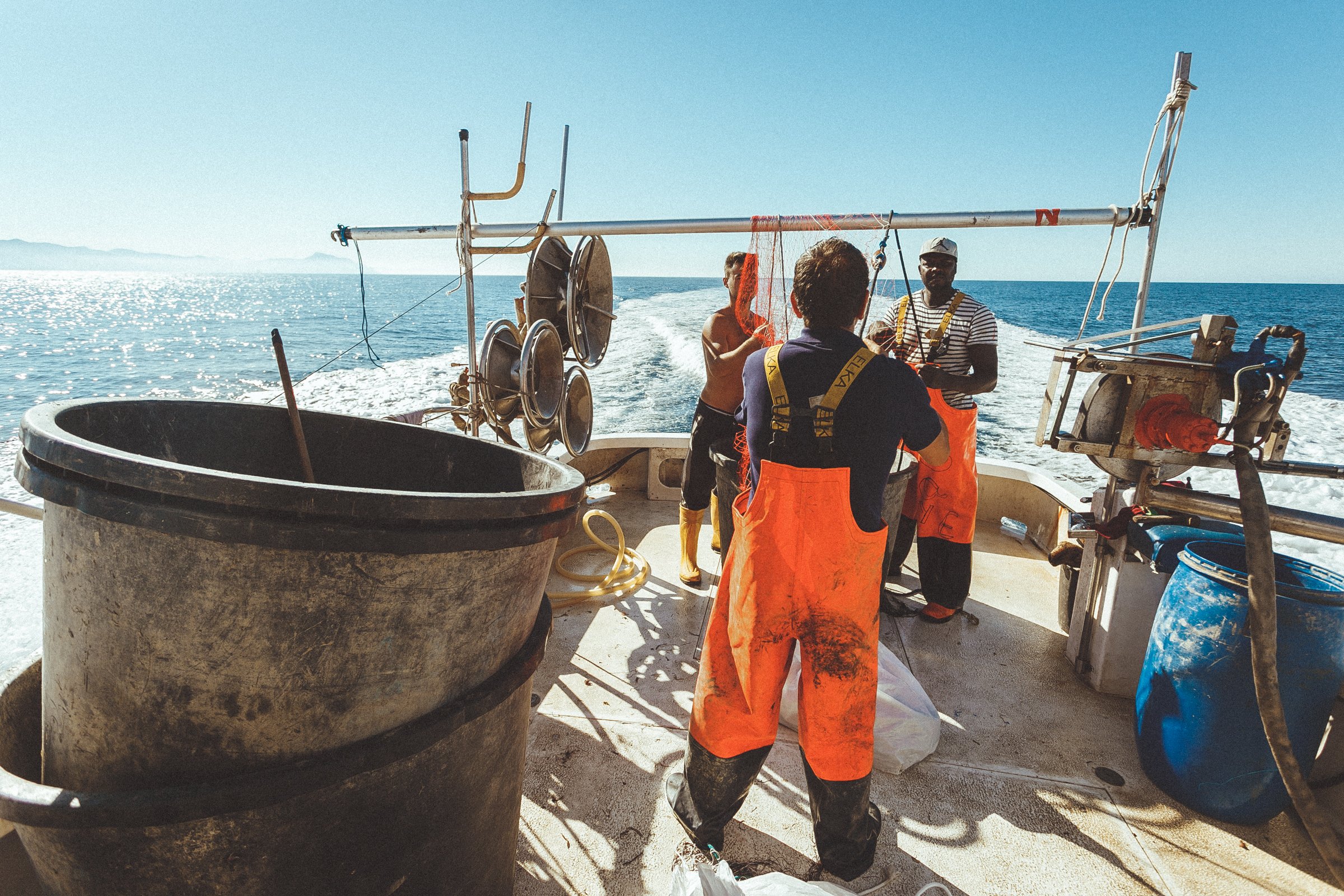“We are not a fashion brand; we produce swimwear to clean the ocean of plastic.”
This is how the Ogyre team define their brand, or more precisely their social start-up. CEO Antonio Augeri and his, shall we say, crew steal rubbish from the sea every day and turn it into swimwear. The process of “fishing for litter” is as ingenious as it is simple, and Ogyre is the pioneer in Italy.
Why “Ogyre”:
The name Ogyre comes from “ocean gyres”, better known as whirlpools. These distinctive currents create suction in seas and oceans, sucking everything in their path towards their centre. However, this natural process, which is vital to the marine ecosystem, has resulted in a grotesque and paradoxical situation: whirlpools capture plastic waste, which stays floating on the surface.
The accumulation of plastic pulled in by ocean gyres creates what we know today as “garbage patch”.
Human impact has thus turned natural ocean currents into a trap for rubbish, which stagnates and undergoes a photodegradation process, breaking down into tinier and tinier pieces. These clusters are extremely harmful to seabirds and fish, which feed on this synthetic junk mistaking it for food, producing alarming effects on the food chain, including humans.

The Ogyre cycle and “fishing for litter”:
Ogyre’s aim is to go back to the drawing board, to reconnect the customer with the environment by giving them a real chance to take action through their purchase.
The production chain for Ogyre bikinis and shorts begins at the sea, where fishing boats in partnership with the start-up fish for litter. ¿How? They collect debris that gathers in their nets during normal fishing activities. On land, fishermen are paid according to the amount they have collected.
It monitors the activities of NGOs and activists, who collect the plastic and then report on it. The rubbish is now ready to be transformed into a 100% recycled and recyclable sewing thread, which is used to make swimwear. And so the loop closes: by purchasing, the customer supports and finances the fishermen’s activity.
“We engage fishing boats to help us bring back ashore the plastic gathered in nets —on average 60 kg per month per boat. Plastic in the oceans is one of the biggest environmental problems of our time,” explains Antonio Augeri, CEO and co-founder of Ogyre. “In return, they receive remuneration and are exonerated from any responsibility or financial liability arising from the disposal of this material. The reason is that in Italy fishing for litter is hindered by current legislation, which classifies marine litter as special wastes; therefore costs and criminal liability are borne by fishermen, who are often forced to throw it back into the water instead of bringing it ashore.”
Today Ogyre operates in three Adriatic Sea ports: Cesenatico, Goro and Porto Garibaldi, but seeks to expand into the ocean, to actively contribute to keeping all seas clean of plastic.

The products:
As a video in Ogyre’s home page reminds us, 1 million plastic bottles are produced every minute in the world, and only 7% of global plastic is recycled. Scary, isn’t it?
Ogyre’s contribution to the planet is reflected in its two main products: the Oshorts (swim shorts) and the Okini (bikini). “Okini is rubbish and we are proud of it,” reads a Instagram post from the brand. A simple statement to explain that all materials used are recycled, and that the company is constantly seeking technologies to increase the marine debris content of its products.
Each Okini is made using the equivalent of 3 plastic bottles, while an Oshort “steals” 6 bottles from the sea. These products are themselves 100% recyclable and made of a unique polymer that allows their traceability. Besides swimwear to clean the ocean of plastic, there is also the Obottle, Ogyre’s water bottle against disposable bottles.
Buying from Ogyre provides a real and direct help in saving the ocean: one swimsuit sequesters 2kg of plastic and one Obottle, 1kg. That is why the customer is considered a contributor and not a consumer.

Restoring the balance between people and the ocean is no easy feat.
WWF estimates that between 4.8 and 12.7 million tonnes of plastic waste end up in our oceans every year. If this trend fails to improve, by 2050, there will be more waste in the sea than fish. Brands like Ogyre, through their positive impact, narrow the gap between the environment and our daily mistakes, but they are not enough on their own.
We close with a reflection by Tom Szaky, founder of Terracycle (whose story you can read here) to remind us —and you— about the power of the individual:
Consumers often think they are powerless, they believe that only big companies or governments should solve environmental problems. Yet the craziest thing is that all the big brands do is look to the consumer! The consumer is the only one who has the power. We have the power to change things.





